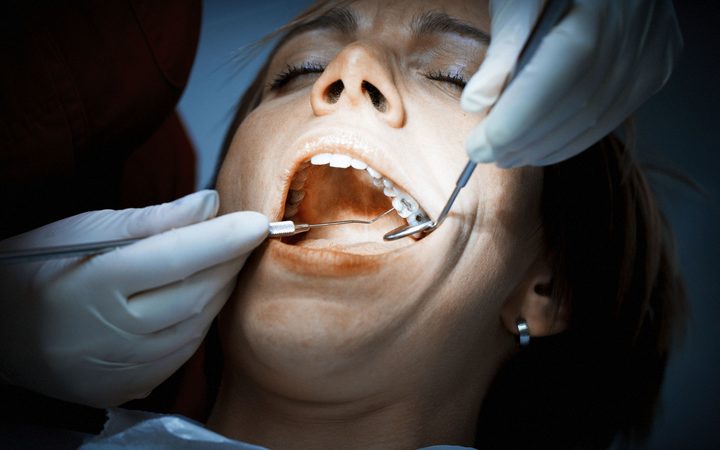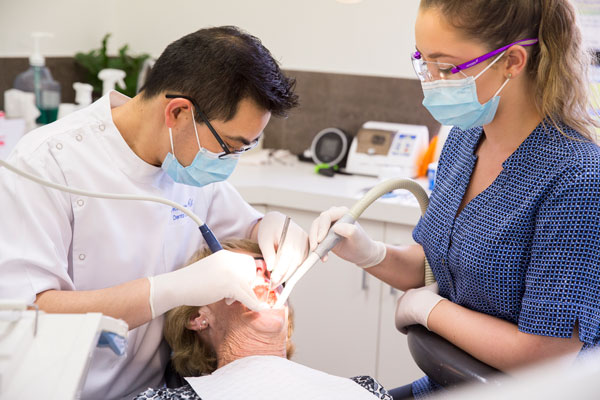At times, dental pain can be intolerable despite taking all of the prescribed pain-relievers and anti-inflammatory drugs. A dental emergency can be as serious as a medical emergency, except that there is never a life-threatening risk. It is, therefore, essential to recognize the symptoms of a dental emergency. For instance, dental emergency consultations are required in situations such as:
1) Dental Abscess
This is caused by the destruction of the tooth nerve (necrosis) and the proliferation of anaerobic germs (Organisms that do not require oxygen to grow). How to identify it? The tooth is not sensitive to cold or heat, and is impossible to touch it or eat with it. The pain is often worse at night, accompanied by swelling and other symptoms such as fever and submandibular ganglion. You can localize the problematic tooth using your finger to tap on each tooth and identify which one is sensible.
For this type of emergency, antibiotics are necessary. If you cannot find a dentist, you can consult a general practitioner to help. However, keep in mind that in the case of a dental abscess, you should never take anti-inflammatory drugs on your own as this may complicate the situation.

2) The Presence of an Infection.
Infections are potential causes of severe pain and toothache. It may also appear as an abscess or facial swelling. Other warning signs of dental disease include fever, difficulty breathing, swallowing and opening the mouth. Infections can be linked to the extraction of wisdom teeth, periodontal abscess, etc.
3) Extreme Fatigue
This may be a complex sign to interpret. Fatigue and exhaustion can occur as a result of the various situations that life throws at you. If you are always feeling exceedingly tired, one of the triggers may be an oral infection. It is advisable to consult your dentist to ensure that a tooth abscess or gum disease is not causing your tiredness. If this is the case, you will also be able to treat your symptoms quickly, and if it is not, you can have treatments to prevent any such thing from happening.
4) Pulpitis (Inflammation of the Dental Pulp)
Pulpitis is a dental condition characterized by an inflamed dental pulp. It can appear in one or more teeth and is caused by bacteria that enter the tooth’s pulp, a vital part of the tooth structure, and causes it to swell. Other pulpitis circumstances may arise from decay or the loss of a filling or dental composite (feeling like a hole when you put your tongue through). The open nerve will react aggressively to all external stresses: especially cold, heat and sugar. The pain becomes more and more intolerable with time, and very often, pain killers only reduce the pain for a short period.
5) Bleeding and Painful Gums
Experiencing bleeding gums after flossing is not normal. This may be an indication of gum disease or gingivitis. If you notice extensive, persistent and even painful bleeding from your gums, you need to stay alert since these are some of the most prevalent signs of gum disease. Consult your dentist if you have any of those symptoms. Signs of gum disease can reach the point of no return if left untreated!

6) Your Canker Sores Aren’t Healing
This is applicable for any lesion that has developed in the mouth and will not go away. Canker sores are normal and can appear a dozen times in a given person. The exception is when canker sores persist or become infected. If there is an open sore in your mouth that hasn’t healed in two weeks, call your doctor or dentist!
If you are in unbearable pain and can’t find a reliable dentist, contact Trio Dentistry to see an emergency dentist. Their experienced and qualified dentists can evaluate and treat toothache, gum swelling and skin redness and many other dental conditions.


